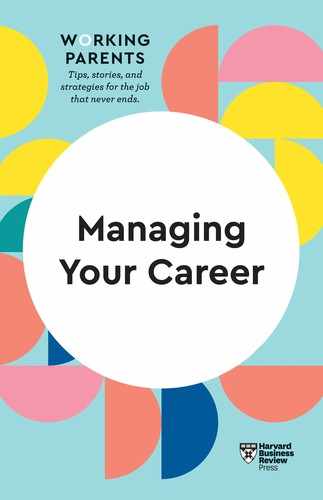What I Learned About Working Parenthood After My Kids Grew Up
by Avivah Wittenberg-Cox
Quick Takes
- Refocus on professional priorities and dreams
- Enjoy your weekends and evenings
- Travel for work becomes an opportunity to explore
There are so many articles about the challenges and stresses of being a working parent. Let me, for a moment, shine a light on the pleasures that await you once your kids have grown up and left home—it comes faster than you think.
You’ve probably heard of the happiness U-curve of life.1 All over the world, human happiness slumps between the ages of 30 and 50. Those marriage-parenting-eldercare-working years can be a tough slog, as many of us will admit to one another.
But what fewer parents will admit to is the thrill of being post-hands-on parenting. The delight of watching the kids you have adored, accompanied, and applauded for a couple of decades blossom into themselves—and leave you the freedom to do the same. The sudden, astonishing emptiness of time when all that’s left to do is . . . work. The ability to refocus on professional priorities and dreams is an unexpected gift, and one we rarely plan for. In my 30s, I assumed I’d be retiring in my 60s. But today, at 56, I’m beginning to think I’ve only just begun.
For primary caregivers, this is a discovery and a liberation. It took me years to adjust to the fact that weekends and evenings were my own. I found myself checking my inbox, sure that I was forgetting I had to drive someone somewhere, proofread an essay, or learn some weird new teenage texting pattern. Instead, the white space freed in my brain unleashed a fount of creativity and opportunity. Now, I can glam up and go to a weekend matinee after a late Sunday brunch with my spouse. I feel so grown up! I can also travel the globe for work, guilt-free and nonstop. My semiretired husband occasionally joins me. Suddenly business travel becomes fun and exciting, rather than exhausting and aging.
Another surprising discovery: Your children often become very interesting—even inspiring—people. They do interesting work in interesting places, and you get to visit them. And the more professional they get, the more relevant they discover you become. Not only do your business networks come in handy, but so does just about everything you’ve ever learned about stuff—from accounting to leadership. There are few prizes greater than catching a glimmer of pride in your child’s eyes. Nothing matches the way your kids look at you when they suddenly discover that you are actually, astonishingly . . . interesting. These are the moments that are worth every twinge of terrible-parent guilt you ever felt about missing that school play or skipping out on soccer practice.
All the million little doubts that small humans are expert at implanting in their parents’ guilty hearts when they are young tend to evaporate into thin air when they are older and in need of knowledgeable advice, or a friend with a skill, or even better, a job offer. It’s a very particular pleasure to remain relevant as your children age. To realize that they don’t grow up and leave—they grow up and call. A lot.
This is, sadly, not always the case, of course. I know parents who stayed home, and parents who focused exclusively on work, and in my experience those relationships often seem more difficult. The parents want the kids to appreciate their sacrifices, but the kids didn’t ask the parents to make them. Carl Jung saw it clearly: “Nothing has a stronger influence psychologically on children than the unlived life of the parent.” There is a happy middle, and balance and moderation are never judged over a day or a year, but over the decades.
As lives lengthen, the post-kid decades are stretching out healthier and wealthier than ever before. Depending on the age of your parenting peak (I did the classic 30 to 50), the amount of time you have to contribute your talents is growing. People are “unretiring,” returning to work after an attempt at conforming to old ideas of age.2 They rediscover purpose and pleasure at work—when it isn’t driven by the crushing pressure of full-time schedules or revenue maximization.
Looking back at my years of peak working parenthood, there are four things I wish it had been easier to remember when I was in the thick of things:
- Don’t sweat the small stuff. One bad week doesn’t make you a bad parent. When they grow up, your kids probably won’t even remember it.
- Don’t burn out being a perfectionist parent. Instead, invest sustainably and regularly in yourself and your kids.
- Love them a lot, but keep your ambition focused on your own career, not theirs.
- If you are married, love your spouse, and don’t demote your relationship to the bottom of the priority pile. No one will thank you. Your kids are learning relationship skills from you. Inspire them.
We all want to be wise elders to our children. Who knew, though, that doing so could take dedication to something other than them? In the end, they are the ones who show us that they weren’t enough.
Being a working parent can be hard. But as you get older, like many other things, it gets better and better.
Adapted from content posted on hbr.org, April 13, 2018 (product #H049TV).
